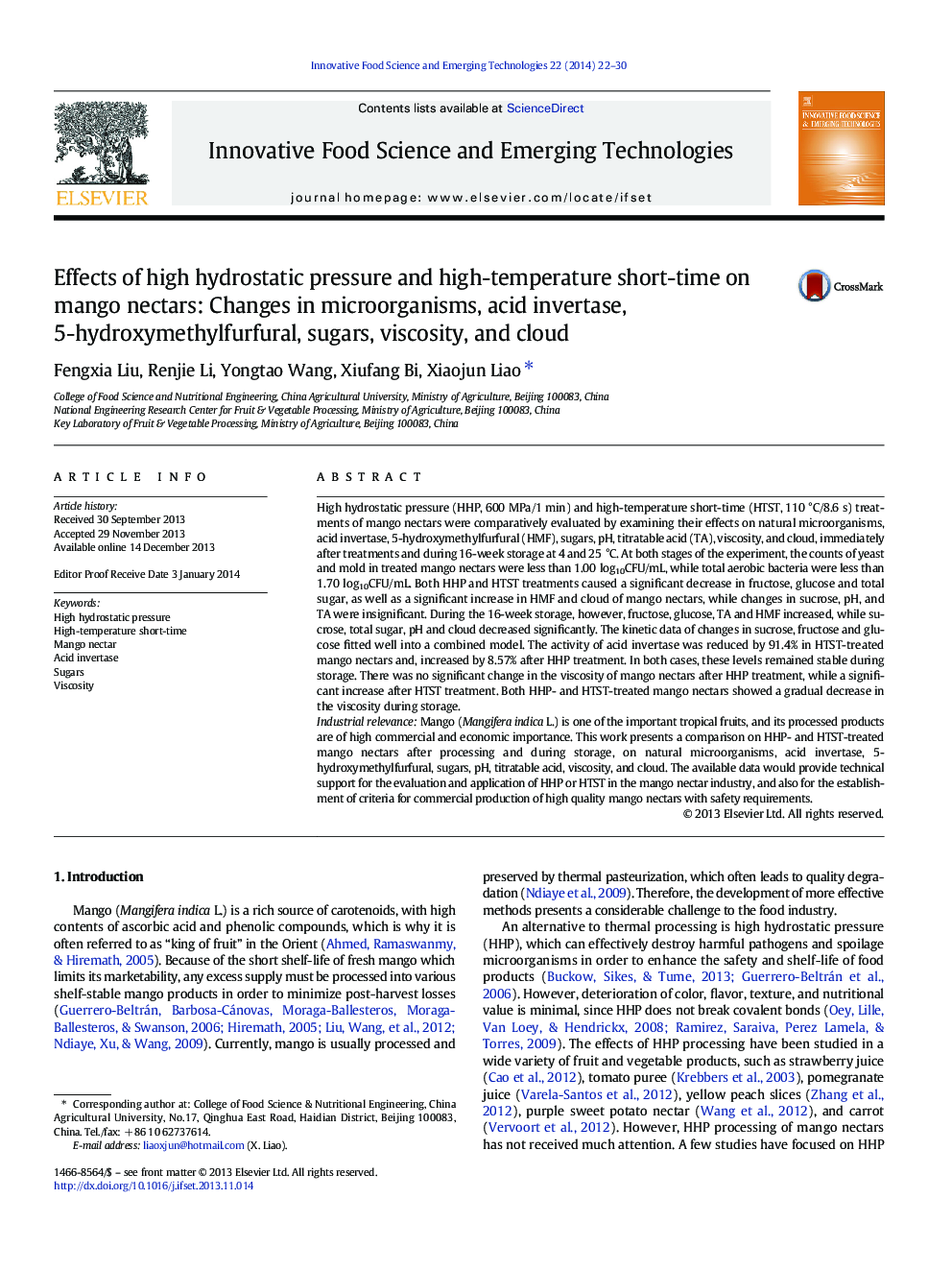| کد مقاله | کد نشریه | سال انتشار | مقاله انگلیسی | نسخه تمام متن |
|---|---|---|---|---|
| 2086615 | 1545544 | 2014 | 9 صفحه PDF | دانلود رایگان |

• Change in mango nectar quality was evaluated after treatment and during storage.
• Effects of high hydrostatic pressure and high temperature short time were compared.
• Mango nectars exhibited a significant microbial reduction after all treatments.
• Fructose, glucose and HMF increased, while others decreased during storage.
• Change in glucose, fructose and sucrose during storage fits well into a combined model.
High hydrostatic pressure (HHP, 600 MPa/1 min) and high-temperature short-time (HTST, 110 °C/8.6 s) treatments of mango nectars were comparatively evaluated by examining their effects on natural microorganisms, acid invertase, 5-hydroxymethylfurfural (HMF), sugars, pH, titratable acid (TA), viscosity, and cloud, immediately after treatments and during 16-week storage at 4 and 25 °C. At both stages of the experiment, the counts of yeast and mold in treated mango nectars were less than 1.00 log10CFU/mL, while total aerobic bacteria were less than 1.70 log10CFU/mL. Both HHP and HTST treatments caused a significant decrease in fructose, glucose and total sugar, as well as a significant increase in HMF and cloud of mango nectars, while changes in sucrose, pH, and TA were insignificant. During the 16-week storage, however, fructose, glucose, TA and HMF increased, while sucrose, total sugar, pH and cloud decreased significantly. The kinetic data of changes in sucrose, fructose and glucose fitted well into a combined model. The activity of acid invertase was reduced by 91.4% in HTST-treated mango nectars and, increased by 8.57% after HHP treatment. In both cases, these levels remained stable during storage. There was no significant change in the viscosity of mango nectars after HHP treatment, while a significant increase after HTST treatment. Both HHP- and HTST-treated mango nectars showed a gradual decrease in the viscosity during storage.Industrial relevanceMango (Mangifera indica L.) is one of the important tropical fruits, and its processed products are of high commercial and economic importance. This work presents a comparison on HHP- and HTST-treated mango nectars after processing and during storage, on natural microorganisms, acid invertase, 5-hydroxymethylfurfural, sugars, pH, titratable acid, viscosity, and cloud. The available data would provide technical support for the evaluation and application of HHP or HTST in the mango nectar industry, and also for the establishment of criteria for commercial production of high quality mango nectars with safety requirements.
Journal: Innovative Food Science & Emerging Technologies - Volume 22, April 2014, Pages 22–30